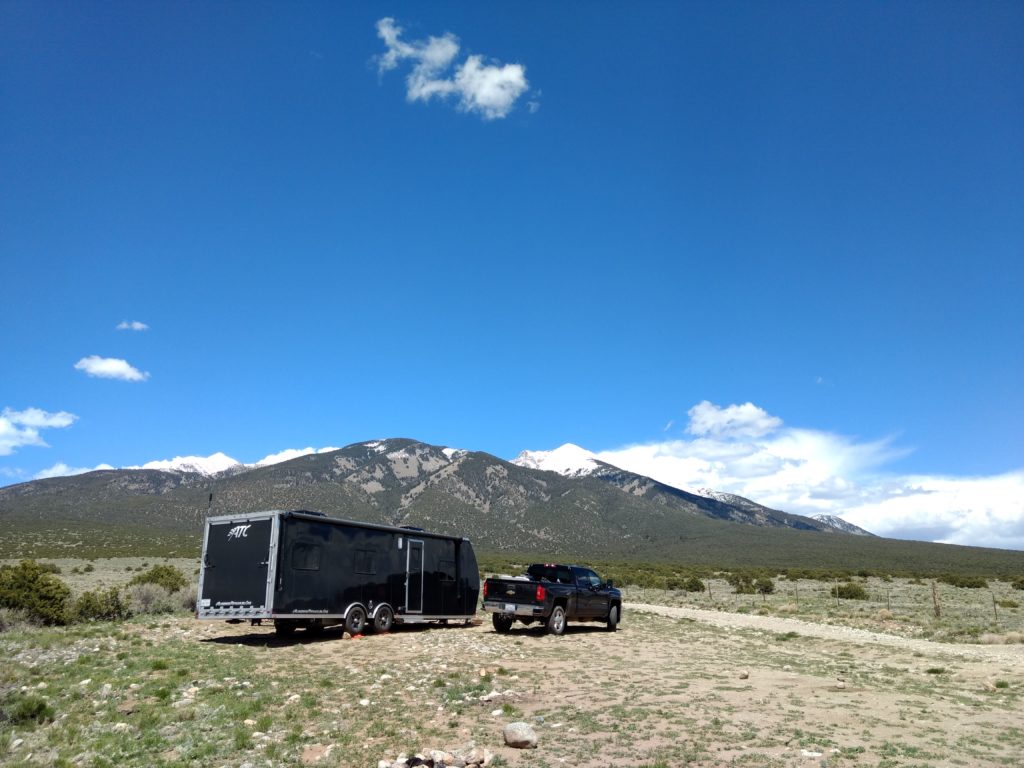Boondocking is no more dangerous than staying in RV parks or campgrounds. In fact, boondocking is safer. This is because you are further away from other people, and further away from criminal opportunity. Most people choose boondocking because they feel safer and more in control of their situation.

Is Boondocking Dangerous?
Boondocking generally refers to camping further away from civilization and further away from other campers (see our definition of boondocking). This fact alone makes boondockers more safe from criminals. Because boondockers stay in areas where fewer people are watching, there is inherently more security. Read our other article, “Is Boondocking Safe?“
RV Parks Are Far More Deadly
Run a Google News search for “rv park murder” and you will find dozens, if not hundreds, of news reports of people getting killed in RV parks. These involve gun shootings, knife attacks, and accidents related to faulty RV park equipment.
Safety is a Big Reason Why RVers Prefer Boondocking
Many people prefer to boondock to get away from crime, congestion, vandalism, and pollution.
But I’ve Heard Reports of People Getting Killed While Boondocking
Yes, it has happened. But then again, people get attacked all the time everywhere. But when you compare the numbers of violent attacks while boondocking versus violent attacks at RV parks, you’ll find that far more people are getting killed in RV parks than out in the wilderness.
Free Camping is Not the Same as Boondocking
Free camping does not necessarily require camping out in the wilderness. It can also include stealth camping in the city, overnighting at Walmarts, or finding empty lots in the city. Boondocking, however, is specifically camping far away from other people, out in the wilderness, for the purpose of being closer to nature and enjoying camping in more traditional ways. Because of this, boondocking is inherently a more safer variety of free camping.
What About Wild Animals?
It’s very rare for wild animals to attack boondockers. Mountain lions very rarely attack humans, and usually only occurs when a solitary person is out hiking. Bears attacks are also very rare because most bears in the United States are black bear which are largely vegetarian, and unwilling to engage with humans. The only time black bears have attacked humans is when someone started a habit of feeding them, which causes them to become more aggressive.
Grizzly bear, on the other hand, are more likely to attack humans. However within the lower 48 states, their habitat is found only in pockets of northern Montana, northern Idaho, and in Yellowstone National Park. See our other article, “Do I Have to Worry About Bears When Boondocking?“
The wild animal with the highest possibility of attacking you is a rattlesnake, and this would occur while hiking. See also, “Will I get Attacked by Wild Animals When Boondocking?“
But Isn’t Boondocking More Dirty, and Expose You to More Disease?
Quite the opposite. You’re more likely to get diseases from RV parks, by interacting with other people, shaking hands, and touching objects. Boondockers often get more dirty because they tend to hike more, sit around campfires more, and spend more time outside. But that doesn’t expose you to more disease. If anything, you might be susceptible to allergic reactions.

